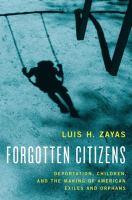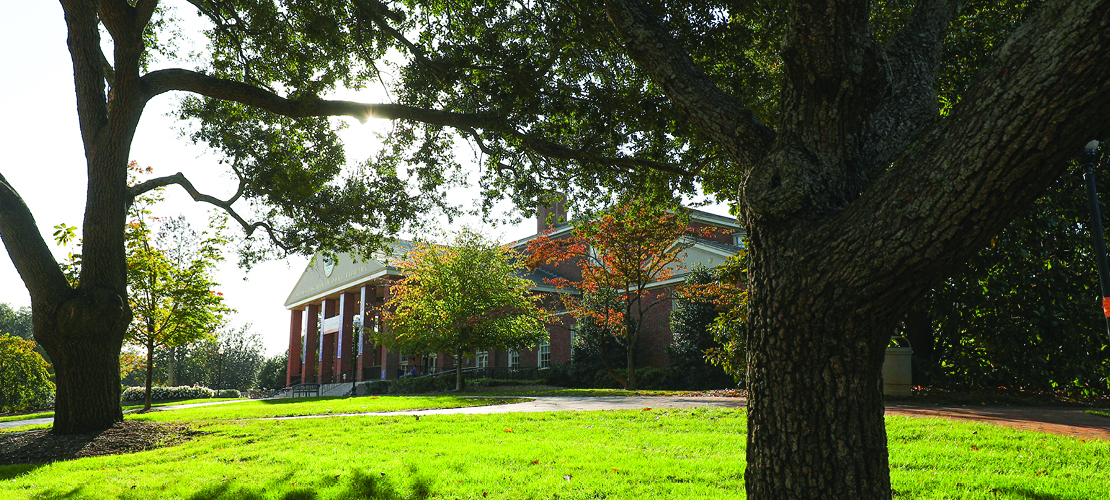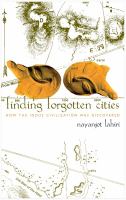Finding forgotten cities : how the Indus civilization was discovered Just a century ago, scholars believed that civilization in the Indus Valley began three thousand years ago during the Vedic Age. But in the autumn of 1924, John Marshall made an announcement that rocked the understanding of the ancient world and pushed back the boundaries of Indian history by two thousand years more: the discovery of the civilization at Harappa, located in present-day Sindh and Punjab, Pakistan. A sophisticated culture dating back to 2600 BCE, this ancient city was notable for its well-planned streets and for having the oldest known urban sanitation system. Based on previously unknown archival materials, Finding Forgotten Cities not only details an archeological discovery on the same scale as Troy, but introduces us to the colorful cast of characters who made it possible and overcome the challenges and travails of this colossal excavation. -from the publisher
 Dixie’s forgotten people : the South’s poor whites Poor whites have been isolated from mainstream white Southern culture and have been in turn stereotyped as rednecks and Holy Rollers, discriminated against, and misunderstood. In their isolation, they have developed a unique subculture and defended it with a tenacity and pride that puzzles and confuses the larger society. Written 25 years ago, this book was one scholar’s attempt to understand these people and their culture. – from the publisher
Dixie’s forgotten people : the South’s poor whites Poor whites have been isolated from mainstream white Southern culture and have been in turn stereotyped as rednecks and Holy Rollers, discriminated against, and misunderstood. In their isolation, they have developed a unique subculture and defended it with a tenacity and pride that puzzles and confuses the larger society. Written 25 years ago, this book was one scholar’s attempt to understand these people and their culture. – from the publisher
 Thomas Jefferson and the Tripoli pirates : the forgotten war that changed American history When Thomas Jefferson became president in 1801, America was deeply in debt, with its economy and dignity under attack. Pirates from North Africa’s Barbary Coast routinely captured American merchant ships and held the sailors as slaves, demanding ransom and tribute payments far beyond what the new country could afford. For fifteen years, America had tried to work with the four Muslim powers (Tripoli, Tunis, Algiers, and Morocco) driving the piracy, but negotiation proved impossible. Realizing it was time to stand up to the intimidation, Jefferson decided to move beyond diplomacy. He sent the U.S. Navy and Marines to blockade Tripoli—launching the Barbary Wars and beginning America’s journey toward future superpower status. Few today remember these men and other heroes who inspired the Marine Corps hymn: “From the Halls of Montezuma to the Shores of Tripoli, we fight our country’s battles in the air, on land and sea.” Thomas Jefferson and the Tripoli Pirates recaptures this forgotten war that changed American history with a real-life drama of intrigue, bravery, and battle on the high seas. – from the publisher
Thomas Jefferson and the Tripoli pirates : the forgotten war that changed American history When Thomas Jefferson became president in 1801, America was deeply in debt, with its economy and dignity under attack. Pirates from North Africa’s Barbary Coast routinely captured American merchant ships and held the sailors as slaves, demanding ransom and tribute payments far beyond what the new country could afford. For fifteen years, America had tried to work with the four Muslim powers (Tripoli, Tunis, Algiers, and Morocco) driving the piracy, but negotiation proved impossible. Realizing it was time to stand up to the intimidation, Jefferson decided to move beyond diplomacy. He sent the U.S. Navy and Marines to blockade Tripoli—launching the Barbary Wars and beginning America’s journey toward future superpower status. Few today remember these men and other heroes who inspired the Marine Corps hymn: “From the Halls of Montezuma to the Shores of Tripoli, we fight our country’s battles in the air, on land and sea.” Thomas Jefferson and the Tripoli Pirates recaptures this forgotten war that changed American history with a real-life drama of intrigue, bravery, and battle on the high seas. – from the publisher
 The forgotten : how the people of one Pennsylvania county elected Donald Trump and changed America The people of Luzerne County, Pennsylvania voted Democratic for decades, until Donald Trump flipped it in 2016. What happened? In The Forgotten, Ben Bradlee Jr. reports on how voters in Luzerne County, a pivotal county in a crucial swing state, came to feel like strangers in their own land – marginalized by flat or falling wages, rapid demographic change, and a liberal culture that mocks their faith and patriotism. Fundamentally rural and struggling with changing demographics and limited opportunity, Luzerne County can be seen as a microcosm of the nation. In The Forgotten, Trump voters speak for themselves, explaining how they felt others were ‘cutting in line’ and that the federal government was taking too much money from the employed and giving it to the idle. The loss of breadwinner status, and more importantly, the loss of dignity, primed them for a candidate like Donald Trump. – from the publisher
The forgotten : how the people of one Pennsylvania county elected Donald Trump and changed America The people of Luzerne County, Pennsylvania voted Democratic for decades, until Donald Trump flipped it in 2016. What happened? In The Forgotten, Ben Bradlee Jr. reports on how voters in Luzerne County, a pivotal county in a crucial swing state, came to feel like strangers in their own land – marginalized by flat or falling wages, rapid demographic change, and a liberal culture that mocks their faith and patriotism. Fundamentally rural and struggling with changing demographics and limited opportunity, Luzerne County can be seen as a microcosm of the nation. In The Forgotten, Trump voters speak for themselves, explaining how they felt others were ‘cutting in line’ and that the federal government was taking too much money from the employed and giving it to the idle. The loss of breadwinner status, and more importantly, the loss of dignity, primed them for a candidate like Donald Trump. – from the publisher Forgotten citizens : deportation, children, and the making of American exiles and orphansThe United States Constitution insures that all persons born in the US are citizens with equal protection under the law. But in today’s America, the US-born children of undocumented immigrants–over four million of them–do not enjoy fully the benefits of citizenship or of feeling that they belong. Children in mixed-status families are forgotten in the loud and discordant immigration debate. They live under the constant threat that their parents will suddenly be deported. Their parents face impossible decisions: make their children exiles or make them orphans. In Forgotten Citizens, Luis Zayas holds a mirror to a nation in crisis, providing invaluable perspectives for anyone brave enough to look. Zayas draws on his extensive work as a mental health clinician and researcher to present the most complete picture yet of how immigration policy subverts children’s rights, harms their mental health, and leaves lasting psychological trauma. – from the publisher
Forgotten citizens : deportation, children, and the making of American exiles and orphansThe United States Constitution insures that all persons born in the US are citizens with equal protection under the law. But in today’s America, the US-born children of undocumented immigrants–over four million of them–do not enjoy fully the benefits of citizenship or of feeling that they belong. Children in mixed-status families are forgotten in the loud and discordant immigration debate. They live under the constant threat that their parents will suddenly be deported. Their parents face impossible decisions: make their children exiles or make them orphans. In Forgotten Citizens, Luis Zayas holds a mirror to a nation in crisis, providing invaluable perspectives for anyone brave enough to look. Zayas draws on his extensive work as a mental health clinician and researcher to present the most complete picture yet of how immigration policy subverts children’s rights, harms their mental health, and leaves lasting psychological trauma. – from the publisherJFK’s forgotten crisis : Tibet, the CIA, and Sino-Indian War U.S. President John F. Kennedy faced two great crises in 1962 – the Cuban missile crisis and the Sino-Indian War. While his part in the missile crisis that threatened to snowball into a nuclear war has been thoroughly studied, his critical role in the Sino-Indian War has been largely ignored. Riedel’s telling of the president’s firm response to China’s invasion of India and his deft diplomacy in keeping Pakistan neutral provides a unique study of Kennedy’s leadership. Embedded within that story is an array of historical details of special interest to India and the backstory to the China-India rivalry. – from the publisher
 History of a disappearance : the story of a forgotten Polish town Lying at the crucible of Central Europe, the Silesian village of Kupferberg suffered the violence of the Thirty Years War, the Napoleonic Wars, and World War I. After Stalin’s post-World War II redrawing of Poland’s borders, Kupferberg became Miedzianka, a town settled by displaced people from all over Poland and a new center of the Eastern Bloc’s uranium-mining industry. Decades of neglect and environmental degradation led to the town being declared uninhabitable, and the population was evacuated. Today, it exists only in ruins, with barely a hundred people living on the unstable ground above its collapsing mines. – from the publisher
History of a disappearance : the story of a forgotten Polish town Lying at the crucible of Central Europe, the Silesian village of Kupferberg suffered the violence of the Thirty Years War, the Napoleonic Wars, and World War I. After Stalin’s post-World War II redrawing of Poland’s borders, Kupferberg became Miedzianka, a town settled by displaced people from all over Poland and a new center of the Eastern Bloc’s uranium-mining industry. Decades of neglect and environmental degradation led to the town being declared uninhabitable, and the population was evacuated. Today, it exists only in ruins, with barely a hundred people living on the unstable ground above its collapsing mines. – from the publisher
 The forgotten fifth : African Americans in the age of revolution As the United States gained independence, a full fifth of the country’s population was African American. The experiences of these men and women have been largely ignored in the accounts of the colonies’ glorious quest for freedom. Gary B. Nash tells of revolutionary fervor arousing a struggle for freedom that spiraled into the largest slave rebellion in American history, as blacks fled servitude to fight for the British, who promised freedom in exchange for military service. The Revolutionary Army never matched the British offer, and most histories of the period have ignored this remarkable story. The conventional wisdom says that abolition was impossible in the fragile new republic. Nash, however, argues that an unusual convergence of factors immediately after the war created a unique opportunity to dismantle slavery. The founding fathers’ failure to commit to freedom led to the waning of abolitionism just as it had reached its peak. In the opening decades of the nineteenth century, as Nash demonstrates, their decision enabled the ideology of white supremacy to take root, and with it the beginnings of an irreparable national fissure. The moral failure of the Revolution was paid for in the 1860s with the lives of the 600,000 Americans killed in the Civil War. – from the publisher
The forgotten fifth : African Americans in the age of revolution As the United States gained independence, a full fifth of the country’s population was African American. The experiences of these men and women have been largely ignored in the accounts of the colonies’ glorious quest for freedom. Gary B. Nash tells of revolutionary fervor arousing a struggle for freedom that spiraled into the largest slave rebellion in American history, as blacks fled servitude to fight for the British, who promised freedom in exchange for military service. The Revolutionary Army never matched the British offer, and most histories of the period have ignored this remarkable story. The conventional wisdom says that abolition was impossible in the fragile new republic. Nash, however, argues that an unusual convergence of factors immediately after the war created a unique opportunity to dismantle slavery. The founding fathers’ failure to commit to freedom led to the waning of abolitionism just as it had reached its peak. In the opening decades of the nineteenth century, as Nash demonstrates, their decision enabled the ideology of white supremacy to take root, and with it the beginnings of an irreparable national fissure. The moral failure of the Revolution was paid for in the 1860s with the lives of the 600,000 Americans killed in the Civil War. – from the publisher
 The island at the center of the world : the epic story of Dutch Manhattan and the forgotten colony that shaped America In the late 1960s, an archivist in the New York State Library discovered an astounding 12,000 pages of centuries-old documents from the Dutch colony centered on Manhattan. For the past thirty years, scholar Charles Gehring has been translating this national treasure, and now, Russell Shorto has used this vital material to construct a sweeping narrative of Manhattan’s founding that gives a startling, fresh perspective on how America began. – from the publisher
The island at the center of the world : the epic story of Dutch Manhattan and the forgotten colony that shaped America In the late 1960s, an archivist in the New York State Library discovered an astounding 12,000 pages of centuries-old documents from the Dutch colony centered on Manhattan. For the past thirty years, scholar Charles Gehring has been translating this national treasure, and now, Russell Shorto has used this vital material to construct a sweeping narrative of Manhattan’s founding that gives a startling, fresh perspective on how America began. – from the publisher
 Forgotten ally : China’s World War II, 1937-1945 For decades, a major piece of World War II history has gone virtually unwritten. The war began in China, two years before Hitler invaded Poland, and China eventually became the fourth great ally, partner to the United States, the Soviet Union, and Great Britain. Yet its drama of invasion, resistance, slaughter, and political intrigue remains little known in the West. – from the publisher
Forgotten ally : China’s World War II, 1937-1945 For decades, a major piece of World War II history has gone virtually unwritten. The war began in China, two years before Hitler invaded Poland, and China eventually became the fourth great ally, partner to the United States, the Soviet Union, and Great Britain. Yet its drama of invasion, resistance, slaughter, and political intrigue remains little known in the West. – from the publisher




